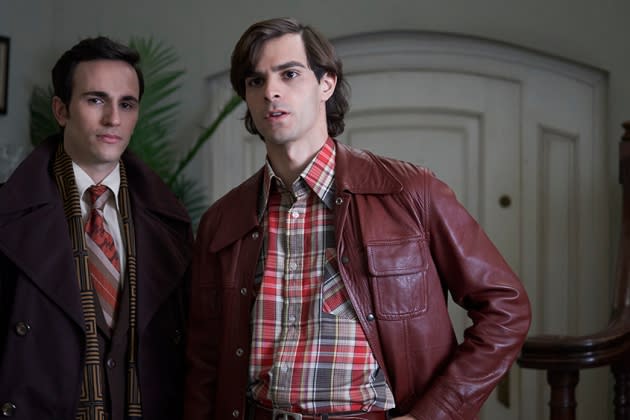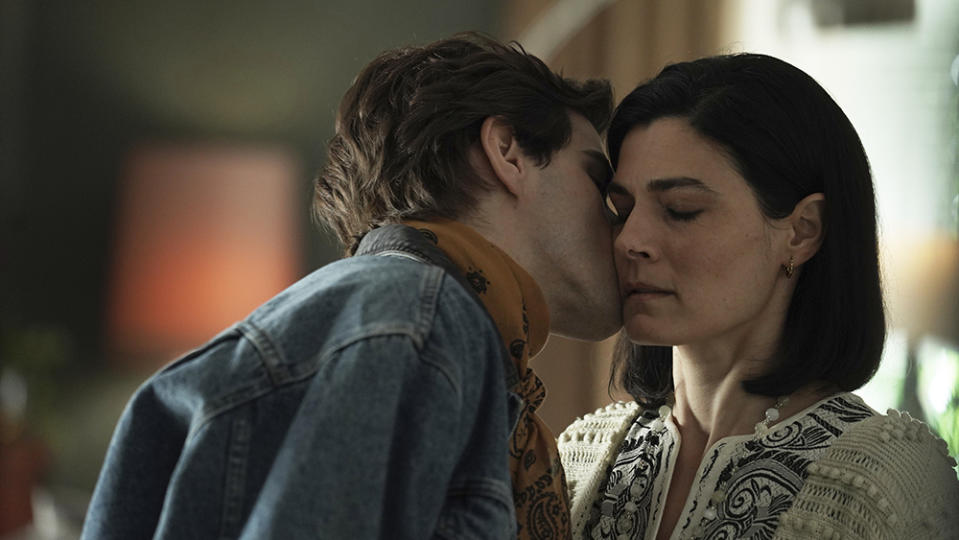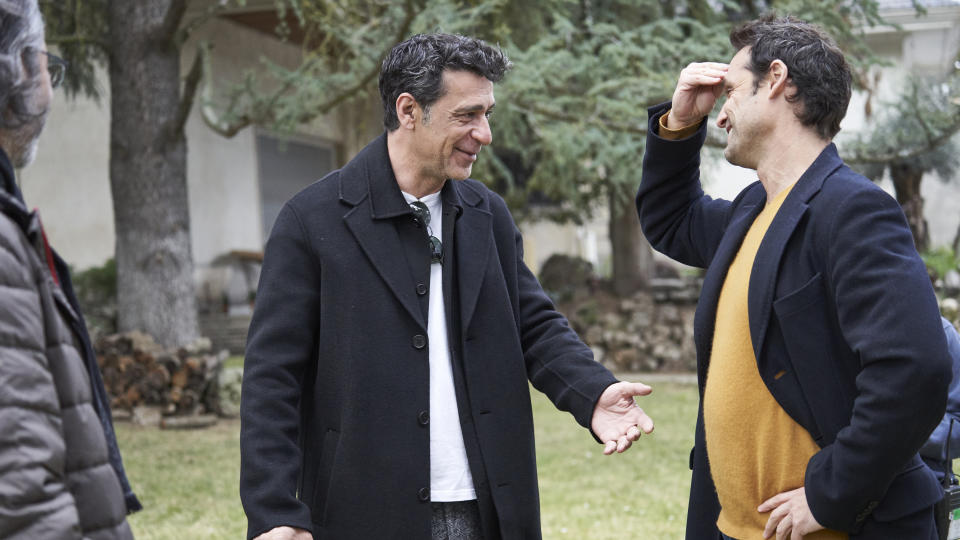‘Bose,’ Paramount Plus’ Anticipated Miguel Bose Bioseries, Broken Down by its Creators and Stars
- Oops!Something went wrong.Please try again later.

Standing in a secluded lane just off Madrid’s main motorway to North-West Spain, the chalet, with its well-trimmed garden, black slate roof and tall, spiked-fence wall, looks as if it would be more in place in a rural estate rather than in a metropolitan city. It also instantly signals a home of the very well-heeled establishment under dictator Francisco Franco.
It now serves as a key set on Paramount Plus’ “Bose,” a six-part series that follows the impressive decades-long career of barrier-breaking Spanish singer-songwriter Miguel Bosé, produced by VIS, Shine Iberia (a Banijay company), Pepe Baston’s Elefantec Global and Legacy Rock.
More from Variety
One of the first – and biggest – barriers that Bosé had to break was his own upbringing, showrunner Nacho Faerna (“La Fuga”) explained on a set-visit to this highly anticipated Spanish-language series, which wrapped production mid-April.
Growing up in the Somosaguas neighborhood, a suburban bastion of the Francoist upper-middle class outside Madrid, Bosé’s father, Luis Miguel Dominguín (played by “The Department of Time’s” Nacho Fresneda), a famous bull-fighter hailing from conservative Toledo, maintained close ties with Franco’s regime.
Filming scenes from Bosé’s early life, the show looks to show how the contradictions between Dominguín and Bosé’s mother, Lucia Bosé (Valeria Solarino), a liberal Italian actress who never integrated fully into the conservatism of Dominguín’s lifestyle, influenced Bosé in creating his ever-famous avant garde personality.
To Faerna, the personalities of these two seemingly polar opposite parents, with Dominguín representing “the macho, ancestral and telluric” and Lucia serving as “an intellectual, sensitive woman surrounded by Europe’s progressive classes,” pushed Bosé to build a career beyond his parents.
As he developed into a star in his own right, Spain itself underwent a dramatic social change, as the conservative dictatorship gave way to a new democratic country and culture. Similar to David Bowie’s cultural crusade against Britain’s conservatism, Bosé’s career featured a constant push back against Spain’s conservative aristocracy.
“He was a real revolution from the point of view, let’s say, of customs, of attitude,” according to Faerna; Bosé “was a type of artist that, here, we had never seen.” In this sense, said Faerna, Bosé “serves well to portray a country in a moment of radical change,” change which the show takes head-on.
Co-directors Fernando Trullols and Miguel Bardem (whose father, Juan Antonio Bardem, cast Lucia Bosé in 1954’s “Death of a Cyclist”), acknowledge the importance this cultural and societal change has in the show.

Credit: Cecilia Bayonas/Shine Iberia
Bosé himself, Trullols said, “transits through many very important moments of our country, through many changes.” Throughout his career, Bosé is “fighting for his liberty, as an artist, as a person. We focus a lot on that part.”
As a six-part series spanning decades, the character of Bosé takes on multiple faces, played by Iván Sánchez (“You Cannot Hide”) and up-and-coming Spanish actor Jose Pastor.
Bosé “has always been in constant evolution,” Sánchez told Variety. “He’s a very active person with a large thirst for knowledge, which has provoked him to always do and search for very diverse and distinct things.”
As Bosé symbolized cultural change in Spain, the show underscores the increasing fiction ambitions of Spain’s industry. “Bosé” is big IP, his international fame providing a strong opportunity for the show to achieve success outside Spain, both for and beyond the world’s 580 million Spanish speakers.
For VIS, a division of Paramount, “Bosé” serves as a key series in their global strategy. As a relatively young studio, launched in 2018, “Bosé’s” importance to the studio boils down to one theme: Partnerships.
“This is a really significant series in our overall strategy,” Laura Abril, SVP, head of VIS EMEA and Asia, told Variety during the set visit.
By focusing on partnerships within the Paramount Global universe, including distribution by Paramount Plus, along with Shine Iberia and Elefantec, according to Abril, VIS is showing “how [VIS has] that ability to partner inside and outside” the Paramount Global network.
For Shine Iberia, “Bosé” fits into its strategy of launching content across the Spanish-speaking world.
“We are always looking for strong stories and content that has a market potential not only in our market but in Latin America and the Hispanic U.S.,” Shine Iberia CEO Macarena Rey told Variety. On top of “Bosé,” Shine Iberia’s current slate includes multiple projects taking place in Latin America and the U.S., pointing to its global ambitions for Spanish-language content.
“Bosé” will air on Paramount Plus in upcoming months.

Credit: Shine Iberia
Best of Variety
Molly Shannon's Memoir 'Hello Molly' Is Already an Instant Bestseller on Amazon
2022 Primetime Emmys Awards Season Calendar: The Governors Balls are Back After Two Years
Sign up for Variety’s Newsletter. For the latest news, follow us on Facebook, Twitter, and Instagram.

